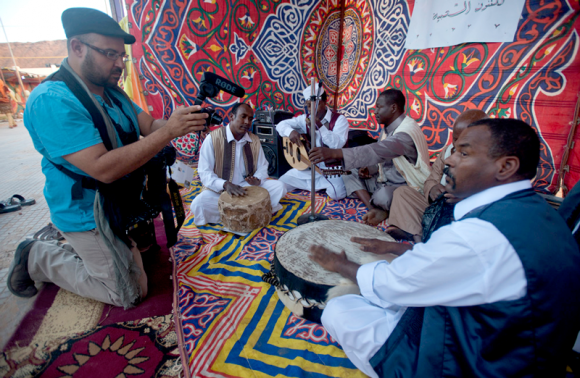
Author: John Smock
Photographer: John Smock
September 23, 2013– We arrived in Sebha, a wind-swept Saharan town about 400 miles south of Tripoli, almost a week ago. Originally built around a hilltop fort, Sebha for centuries worked as a crossroads through the desert. Today it’s a military town and the regional hub for agriculture and commerce.
Southern Libya is different from the north, as African as it is Arab. Day laborers line the dusty roads as cars move by at a slow, continuous flow. The city’s dilapidated, Soviet-style architecture – tan in color and punctuated by an occasional scrappy palm tree — is a reminder of the 40 years of authoritarian rule under Muammar Gaddafi.
As Westerners we are curiosities and draw stares, but overall Sebha seems safe and relatively comfortable, except for the blazing heat. Fall is coming late this year and midday temperatures are easily in the upper 90s. We eat most of our meals at the city’s one remaining hotel. The food – spicy soups, cooked grains and mixed grills – is surprisingly tasty.
Since the revolution Sebha has struggled. It is far from the national decision-makers in Tripoli and seems oddly trapped in some previous time, a relic. The electricity goes out almost daily. New equipment for the radio station and hospital have been promised but remain undelivered or in boxes.
The Germa journalists have reported on these issues and others for their first assignments. This is not the post-revolution Libya they’d hoped for. They are a good group and have been great hosts. The workshops run all day most days, yet several of the participants come to the hotel each evening to discuss their stories or camera gear or just to socialize.
As much as I am looking forward to a beer and other Western conveniences when I return home, Sebha so far has been a terrific adventure and a good project for Small World News.